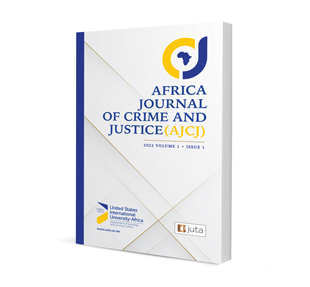
Alternative Dispute Resolution: The Opportunities and Challenges of COVID-19 for the Plea-Bargaining Model in Uganda
Author: Esther Nalungi
ISSN: 2958-8162
Affiliations: Judiciary, Uganda
Source: Africa Journal of Crime and Justice 2022, p. 28 – 54
https://doi.org/10.47348/AJCJ/2022/a2
Abstract
In Uganda, the plea bargaining model has primarily been used as a form of alternative dispute resolution (ADR). Even before the COVID-19 pandemic, prisons across the country grappled with congestion and long pre-trial detentions. The outbreak of COVID-19 augmented these challenges. However, several opportunities, such as the automation of courts through the establishment of an electronic case management information system, online trials, and the reduction of cases without enormous costs, were gained. At the same time, COVID-19 exacerbated the risk of innocent accused entering guilty pleas, especially for offences triable in magistrates’ courts because trials take long. Moreover, Uganda’s criminal justice system is retributive and more concerned with inflicting punishment and suffering on the accused than rehabilitating them. The state is the primary victim of the criminal offence. In contrast, the people harmed by the offence are mere witnesses. Nevertheless, plea bargaining was often conducted in the absence of or without the involvement of the victims of crime. The victims’ rights remained significantly neglected, increasing the lack of trust in the courts. This article examines these issues by discussing plea bargaining as an instance of ADR. The article also explores the opportunities and challenges arising from plea bargaining conducted during the COVID-19 locksdowns by discussing the lived experiences of the accused, victims, and magistrates.